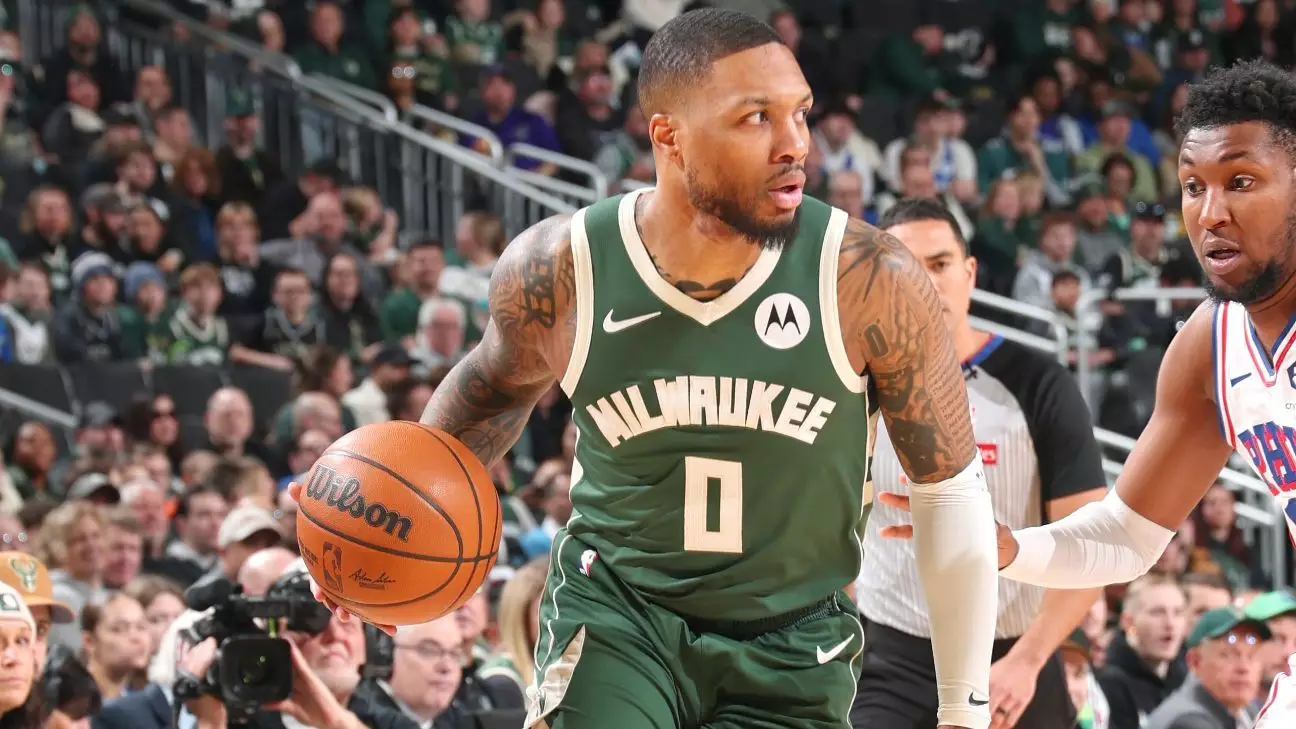In the world of professional sports, few things can shake a team’s confidence quite like losing a star player to injury. The Milwaukee Bucks are presently grappling with this very situation, as their new acquisition, Damian Lillard, has been sidelined due to a serious health complication—deep vein thrombosis in his right calf. Coach Doc Rivers, known for his candid approach, is vocal about the critical nature of this setback, underscoring that a player’s absence can be felt in ways that extend beyond the court. While expressing hope for Lillard’s recovery, Rivers acknowledged the reality that the team must rally collectively to fill the void left by their All-NBA guard.
Understanding the Severity of the Situation
A deep dive into the implications of thrombosis reveals it as a significant health concern, not just for athletes but for anyone who experiences this condition. It involves the formation of a blood clot that could pose long-term risks if not properly managed. Rivers captures the uncertainty surrounding Lillard’s situation by emphasizing, “You hear the word blood clot … that’s not a good word.” Such gravity not only reflects the coach’s concern for his player’s wellbeing but also serves as a stark reminder that the stakes in professional sports transcend wins and losses—they touch on real human health.
What intensifies the situation further is that Lillard is not the only star battling health issues. Giannis Antetokounmpo, the team’s two-time MVP, is also dealing with his own setback—a sprained left foot. This converging of injuries imposes a dual challenge for the Bucks, highlighting the thin margins that often dictate the trajectories of professional teams.
The Importance of Team Cohesion
With Lillard absent, the burden of production naturally shifts to the rest of the roster. Rivers clearly identifies that this challenge will require a collective effort rather than relying on a single individual to step up. He articulates this by stating, “It’s going to be a committee. It’s not going to be one guy.” While this cooperative effort may lessen the acute impact of Lillard’s absence, the likelihood of finding a player capable of replicating his combination of scoring and playmaking prowess remains slim.
This situation is emblematic of the larger dynamics at play in sports, where star players often create a dependency within a team’s structure. The psychological impact of losing such a critical asset can also lead to increased pressure on remaining players, forcing them to adapt quickly and shift their mental game.
Long-Term Implications and Hope for Recovery
While Rivers remains hopeful about Lillard’s eventual return, the uncertainty surrounding recovery timelines raises questions about the Bucks’ long-term strategy. Currently ranked sixth in the Eastern Conference, every game counts significantly as they strive for home-court advantage during the playoffs. Their recent loss to the Denver Nuggets illustrates the urgency of the moment. Being just a half-game behind teams like the Detroit Pistons and two games behind the Indiana Pacers highlights the precarious nature of their position in an increasingly competitive league.
Rivers emphasizes the necessity of maintaining an optimistic mindset. This fortitude is not just crucial for the team’s morale but also significantly impacts Lillard’s recovery process. A supportive environment can result in a faster comeback for the athlete, which further underscores the importance of emotional connectivity within the franchise.
Unity in the Face of Adversity
One of the most poignant facets of this narrative is the unity forged through adversity. With Lillard facing immense personal challenges, Rivers highlights the importance of emotional support. The coach’s focus on standing by Lillard displays a keen understanding of human experience in sports—the emotional is just as crucial as the physical. Beyond the numbers and analytics, this is a testament to the real bond athletes and coaches build, navigating both personal and professional crises together.
As the Bucks work through this challenging period, their resilience will be tested—not only by how they adjust to unforeseen circumstances, but also by how they support one another, orbiting around Lillard during his absence. In navigating through these rough waters, the Milwaukee Bucks have the opportunity to emerge not just as a better team for facing these challenges, but also as a stronger family.


Leave a Reply